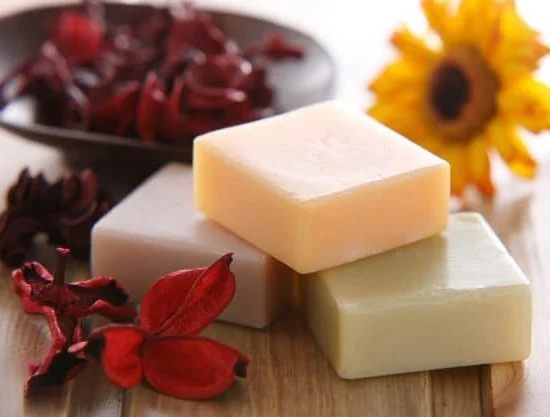Are you curious about whether aromatherapy can boost your test scores? The use of essential oils to enhance cognitive function has been a topic of interest for researchers and students alike. In this article, we will explore the science behind aromatherapy and its potential effects on the brain, as well as how certain scents can improve focus, memory, and overall test performance.
Aromatherapy is the practice of using natural plant extracts, such as essential oils, to promote physical and psychological well-being. Many believe that certain scents have the power to positively impact our mood, cognitive function, and stress levels. But does aromatherapy really have the potential to boost your test scores? Let’s delve into the research and evidence behind this popular practice.
In addition to examining the science behind aromatherapy, we will also explore real-life case studies and research findings that demonstrate the impact of essential oils on academic performance. Whether you’re a student looking for ways to improve your concentration and memory during studying or someone who experiences test-taking anxiety, understanding how aromatherapy works could provide valuable insights for enhancing your academic success.
Join us as we delve into the world of aromatherapy and its potential benefits for improving test scores.
The Science Behind Aromatherapy
Aromatherapy has been used for centuries as a natural way to promote relaxation, improve mood, and even enhance cognitive function. This alternative therapy involves the use of essential oils derived from plant extracts to stimulate the sense of smell and influence the brain’s emotional and cognitive processes. Understanding how aromatherapy impacts the brain can shed light on its potential effects on test performance and academic success.
The olfactory system in the human body is directly linked to the limbic system, which is responsible for regulating emotions, behavior, and memory. When essential oils are inhaled, they stimulate the olfactory receptors in the nose, sending signals to the limbic system. This interaction can lead to various reactions in the body, including changes in heart rate, blood pressure, stress levels, and overall mood.
Here are some ways in which essential oils impact the brain:
- Stimulate neurotransmitters: Certain essential oils can stimulate the production of neurotransmitters like serotonin and dopamine, which are linked to feelings of happiness and well-being.
- Alleviate stress and anxiety: Inhalation of certain essential oils can activate the release of endorphins, which are natural painkillers that also reduce stress and anxiety levels.
- Enhance concentration: Some essential oils have been shown to improve focus and cognitive function by increasing alertness and mental clarity.
Aromatherapy and Focus
Aromatherapy has been used for centuries as a natural way to enhance various aspects of well-being, including concentration and memory. Certain scents have been found to have a positive impact on cognitive function, making them popular choices for those looking to boost their focus during studying or test-taking.
The science behind aromatherapy lies in the way essential oils interact with the brain. When inhaled, these oils stimulate the olfactory system, which is linked to the limbic system – the part of the brain responsible for emotions, behavior, and long-term memory. This stimulation can lead to increased alertness and improved cognitive performance.
Certain scents have been found to be particularly beneficial for enhancing concentration and memory. Some of the best essential oils for this purpose include:
- Peppermint: Known for its invigorating and stimulating properties, peppermint essential oil can help improve focus and mental clarity.
- Rosemary: This herbaceous scent has been shown to enhance alertness and improve overall cognitive performance.
- Lemon: The citrusy aroma of lemon essential oil is known to uplift mood, increase alertness, and boost concentration.
By incorporating these essential oils into your study or test-taking routine, you may experience improved focus and memory recall. Whether diffused in a room, applied topically, or inhaled directly from the bottle, these scents can provide a natural way to support cognitive function.
As research continues to explore the potential benefits of aromatherapy on academic success, it’s important to consider how different scents may impact individual experiences with focus and memory. Experimenting with various essential oils can help determine which ones work best for each person’s specific needs when it comes to boosting test scores.
The Impact of Aromatherapy on Stress and Anxiety Levels During Test-Taking
Stress and anxiety are common experiences for students when it comes to test-taking, but aromatherapy may offer a natural solution to help alleviate these negative feelings. The use of essential oils has been shown to have a calming effect on the brain, which can significantly reduce stress and anxiety levels, ultimately leading to improved performance during exams.
Studies have found that certain scents, such as lavender and rosemary, have anxiolytic properties that can promote relaxation and lower cortisol levels in the body. When inhaled, these essential oils trigger the brain’s limbic system, which is responsible for controlling emotions and memory. As a result, students who use aromatherapy before or during test-taking may experience a greater sense of calmness and mental clarity.
One study conducted at the University of Miami’s Miller School of Medicine found that students who were exposed to rosemary oil before taking their exams performed better than those who weren’t. This indicates that aromatherapy may indeed have a positive impact on test scores by reducing stress and anxiety levels.
Additionally, the study revealed that participants reported feeling more focused and alert after inhaling the scent of rosemary. This suggests that aromatherapy can not only alleviate negative emotions but also enhance cognitive function.
| Essential Oil | Benefit |
|---|---|
| Lavender | Promotes relaxation and decreases cortisol levels. |
| Rosemary | Improves focus, alertness, and cognitive function. |
Case Studies and Research Findings
Several case studies have been conducted to investigate the effects of aromatherapy on test scores and cognitive performance. One study, conducted at a high school in Japan, found that students who were exposed to rosemary essential oil during examinations showed a significant improvement in their test scores compared to those who were not exposed to the scent. This suggests that certain aromas can have a positive impact on academic performance.
In addition to case studies, numerous research findings support the idea that aromatherapy can boost test scores. A study published in the International Journal of Neuroscience found that inhaling lemon essential oil improved participants’ mood and increased their ability to focus during tasks requiring sustained attention. Another study published in the journal Evidence-Based Complementary and Alternative Medicine reported that inhaling lavender essential oil reduced anxiety levels and improved sleep quality in nursing students, leading to better academic performance overall.
Furthermore, there are real-life examples of individuals experiencing an improvement in test scores as a result of incorporating aromatherapy into their study routines. For example, college students who used peppermint essential oil while studying for exams reported feeling more alert and focused, leading to higher grades. These examples provide further evidence that aromatherapy has the potential to enhance cognitive function and ultimately improve test performance.
The available evidence from case studies and research findings strongly supports the notion that aromatherapy can indeed boost test scores through its impact on mood, focus, and anxiety levels. By understanding how specific scents affect the brain and incorporating the best essential oils into study routines, individuals can potentially enhance their cognitive abilities and improve their academic success.
The Best Essential Oils for Improving Cognitive Function and Test Performance
When it comes to improving cognitive function and test performance, certain essential oils have been found to be particularly effective. These oils can help enhance focus, memory, and overall brain function, making them an excellent addition to any study or test-taking routine.
Peppermint Oil
One of the best essential oils for improving cognitive function is peppermint oil. This invigorating scent has been shown to increase alertness and concentration while also improving memory. Inhaling the aroma of peppermint oil can help stimulate the mind and keep you focused during study sessions and exams.
Lavender Oil
Lavender oil is well-known for its calming and stress-relieving properties. When it comes to test performance, managing stress and anxiety is crucial, and lavender oil can help with exactly that. Inhaling this soothing scent can help reduce feelings of nervousness and promote a sense of relaxation, allowing for better focus and clarity during exams.
Rosemary Oil
Another essential oil that is beneficial for improving cognitive function and test performance is rosemary oil. This herbaceous scent has been shown to enhance memory retention and improve overall mental clarity. Incorporating rosemary oil into your study routine can help boost your cognitive abilities and potentially lead to improved test scores.
By incorporating these essential oils into your study environment, whether through diffusing them in a room or using them in personal inhalers, you may experience improved focus, reduced stress, and ultimately better academic performance. While individual results may vary, many students have found success in using aromatherapy to support their academic endeavors.
Practical Tips for Incorporating Aromatherapy Into Study and Test-Taking Routines
Aromatherapy has been found to have a positive impact on cognitive function and test performance. So, how can students incorporate aromatherapy into their study and test-taking routines? Here are some practical tips for using essential oils to enhance focus, memory, and overall academic success.
One of the most effective ways to use aromatherapy for studying and test-taking is through diffusion. Using an essential oil diffuser in the study area can help create a calming and focused environment. Oils such as rosemary, peppermint, and lemon are known for their ability to improve concentration and mental clarity, making them ideal choices for students looking to boost their cognitive function during study sessions.
Another way to incorporate aromatherapy into study routines is through direct inhalation. Students can simply put a few drops of their chosen essential oil onto a cotton ball or handkerchief and inhale the scent while they study. This method allows for quick and convenient access to the beneficial effects of aromatherapy without requiring additional equipment.
In addition to using essential oils during study sessions, students can also utilize aromatherapy during test-taking. Keeping a small bottle of an invigorating essential oil blend, such as a combination of peppermint and eucalyptus, in a pocket or bag can provide a quick and discreet way to ease anxiety and stay focused during exams.
| Aromatherapy Method | Advantages |
|---|---|
| Diffusion | Creates a calming environment; improves concentration |
| Direct Inhalation | Quick access to beneficial effects; no additional equipment needed |
| Use During Test-Taking | Discreet way to ease anxiety; helps with focus during exams |
By incorporating these practical tips for using aromatherapy into their study and test-taking routines, students may be able to experience the benefits of improved focus, enhanced memory retention, and reduced stress levels, thereby potentially boosting their overall test scores.
Conclusion
In conclusion, the science behind aromatherapy suggests that certain scents can indeed have a positive impact on cognitive function, focus, and memory. Research has shown that essential oils like rosemary, peppermint, and lemon can enhance concentration and alertness when inhaled, making them potentially beneficial for students looking to boost their test scores. Additionally, aromatherapy has been found to help reduce stress and anxiety levels during test-taking, which can further improve overall academic performance.
Case studies and research findings provide real-life examples of how aromatherapy has significantly improved test scores for individuals. These success stories further support the idea that incorporating essential oils into study routines can have a positive effect on academic success. From enhancing focus to reducing stress levels, the potential benefits of aromatherapy for boosting test scores are noteworthy.
As students seek ways to improve their academic performance, incorporating aromatherapy into study and test-taking routines may be a practical and effective strategy. By choosing the best essential oils for improving cognitive function and test performance, students can harness the potential benefits of aromatherapy to support their academic success. With its ability to enhance focus, reduce stress, and improve memory retention, aromatherapy may indeed hold promise as a tool for improving test scores and overall educational outcomes.
Frequently Asked Questions
Can Aromatherapy Help With Studying?
Aromatherapy can help with studying by creating a conducive environment for concentration and focus. Certain essential oils like rosemary, peppermint, and lemon are known to improve cognitive function and mental alertness.
What Essential Oil Is Good for Test Taking?
When it comes to test taking, essential oils like lavender, rosemary, and peppermint are often recommended. Lavender can help reduce anxiety, while rosemary and peppermint can aid in mental clarity and memory retention.
Do Essential Oils Affect Testosterone?
Some essential oils have been found to have potential effects on testosterone levels in men. For example, lavender oil has been linked to a decrease in testosterone levels when used in certain personal care products or applied directly to the skin. However, more research is needed to fully understand the impact of essential oils on testosterone.

Are you looking for a natural way to improve your health and wellbeing?
If so, aromatherapy may be the answer for you.



